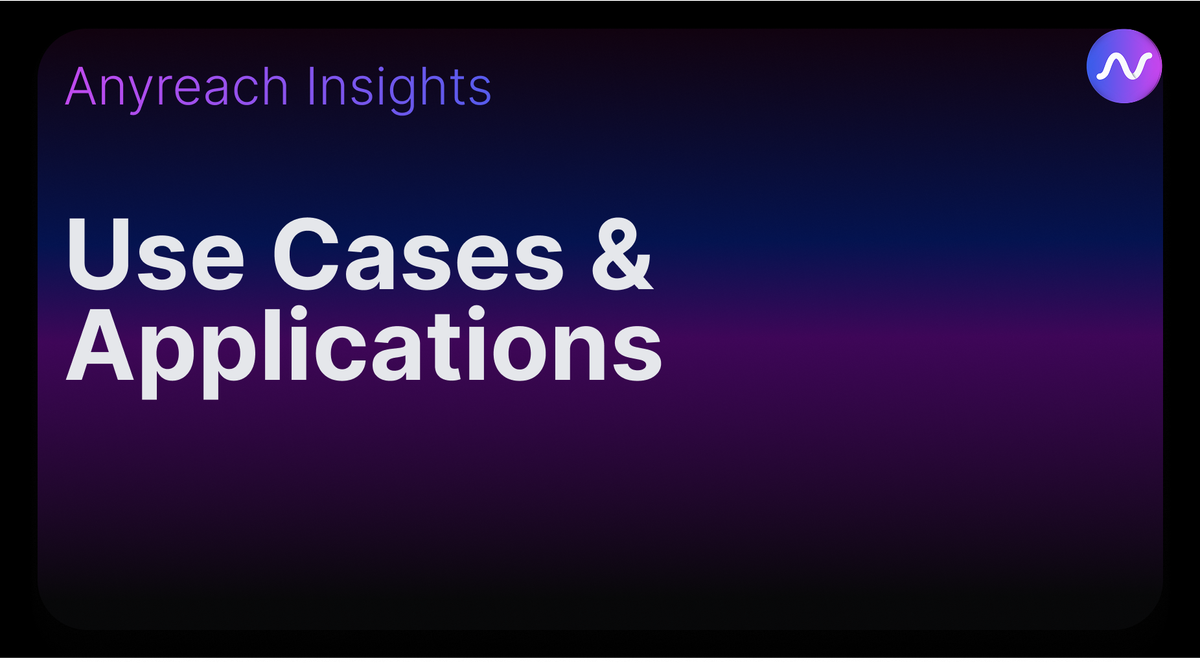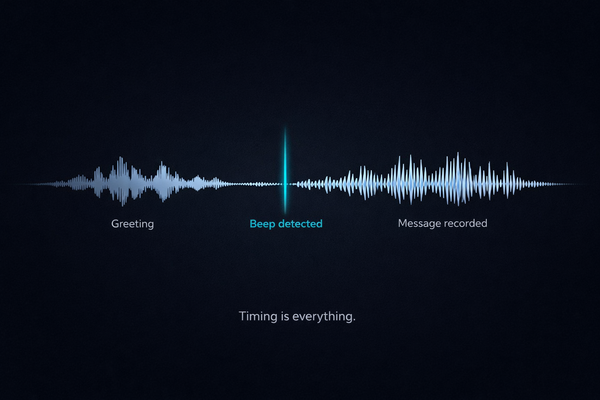Enterprise Agentic AI Use Cases: Solving Real Business Challenges

What are use cases for agentic AI?
Agentic AI use cases include customer support automation, lead qualification, appointment booking, IT troubleshooting, sales automation, and omnichannel communication. Enterprises report 50% efficiency improvements and $300,000 average annual savings through strategic implementation across these applications.
The landscape of enterprise agentic AI applications has evolved dramatically in 2024-2025, with organizations discovering transformative use cases across every aspect of business operations. According to recent industry research, 29% of organizations actively deploy agentic AI, while 44% plan implementation within the next year. The most successful deployments focus on specific, measurable applications that directly address critical business challenges.
Core Enterprise Applications
Customer support automation leads adoption rates, with AI agents resolving 58% of routine inquiries autonomously. Financial services giant Bank of America's "Erica" virtual assistant has handled over 1 billion customer interactions, demonstrating the scalability of well-implemented agentic AI. Similarly, Singapore's government deployed "Ask Jamie" across multiple agencies, reducing call volume by 50% while maintaining service quality.
Lead qualification represents another high-impact application. Agentic AI systems automatically source, enrich, and score leads while personalizing outreach at scale. McKinsey reports that companies implementing AI-powered lead qualification experience 25% higher conversion rates and 35-50% improvements in win rates. The technology excels at speed-to-lead optimization, with automated systems responding to inquiries within seconds rather than hours.
| Use Case | Key Benefits | Typical ROI | Implementation Timeline |
|---|---|---|---|
| Customer Support | 24/7 availability, 55% faster resolution | 40% cost reduction | 3-6 months |
| Lead Qualification | Automated scoring, personalized outreach | 25% conversion increase | 2-4 months |
| Appointment Booking | Natural language scheduling, calendar sync | 70% admin time saved | 1-3 months |
| IT Troubleshooting | 80% query automation, faster ticket resolution | 50% efficiency gain | 4-6 months |
How does omnichannel AI work for customer support?
Omnichannel AI unifies customer interactions across voice, chat, email, and SMS channels through a single intelligent platform. This integration ensures consistent experiences, shared context between channels, and seamless handoffs, resulting in 78% improvement in first-contact resolution rates.
Modern omnichannel AI platforms leverage advanced natural language processing to understand customer intent regardless of communication channel. When a customer initiates contact via chat, then calls later about the same issue, the AI agent maintains full context of previous interactions. This continuity eliminates the frustration of customers repeating information and enables agents to provide more personalized, efficient service.
Technical Architecture and Integration
Successful omnichannel implementations require robust integration with existing enterprise systems. The AI platform must connect with:
- CRM systems (Salesforce, HubSpot, Microsoft Dynamics) for customer history
- Ticketing platforms (ServiceNow, Zendesk) for issue tracking
- Knowledge bases for accurate information retrieval
- Communication infrastructure (telephony, messaging APIs) for channel access
Gartner research indicates that 62% of enterprises face integration challenges, particularly with legacy systems. However, organizations that successfully implement omnichannel AI report remarkable results. A major telecommunications provider reduced average handling time by 35% while improving customer satisfaction scores by 22% through unified AI-powered support.
Can AI handle complex appointment booking scenarios?
AI excels at appointment booking by understanding natural language requests, managing complex scheduling constraints, and integrating directly with calendar systems. Healthcare organizations report 70% reduction in administrative time and virtual elimination of double-booking errors through AI-powered scheduling.
The sophistication of modern appointment booking AI extends far beyond simple calendar matching. These systems handle multi-party scheduling, time zone conversions, resource allocation, and even preference learning. For instance, a consulting firm implemented agentic AI that not only schedules meetings but also:
- Analyzes participant calendars to find optimal meeting times
- Sends personalized invitations with relevant preparation materials
- Handles rescheduling requests automatically
- Integrates with video conferencing platforms for virtual meetings
- Tracks no-shows and implements automated follow-up sequences
Educational institutions particularly benefit during peak enrollment periods. One university reported handling 3x normal inquiry volume during admissions season without adding staff, while maintaining personalized responses to prospective students across multiple languages.
How does chat automation improve IT troubleshooting?
Chat automation transforms IT troubleshooting by instantly diagnosing issues, providing step-by-step solutions, and escalating complex problems with full context. Organizations report 80% of routine IT queries resolved without human intervention, reducing ticket resolution time by 50%.
The power of chat automation in IT support lies in its ability to understand technical problems described in non-technical language. When an employee types "my email isn't working," the AI agent can:
- Diagnose potential causes through intelligent questioning
- Access system logs and user history for context
- Provide customized troubleshooting steps with visual guides
- Remotely execute diagnostic commands when authorized
- Create detailed tickets for human agents if escalation is needed
A global technology company implemented chat automation across its 50,000-employee organization, resulting in:
- 17,000 fewer help desk tickets monthly
- Average resolution time dropping from 4 hours to 12 minutes
- IT staff focusing on strategic projects rather than password resets
- Employee satisfaction with IT support increasing by 45%
What makes voice AI effective for lead qualification?
Voice AI revolutionizes lead qualification through natural conversation, real-time data enrichment, and intelligent routing. BPOs using voice AI report 25% higher conversion rates, with AI agents handling initial qualification calls 24/7 while maintaining human-like interaction quality.
The effectiveness of voice AI in lead qualification stems from several key capabilities:
Natural Language Understanding
Modern voice AI systems process conversational nuances, detecting buying signals, urgency indicators, and qualification criteria through tone and word choice. Unlike traditional IVR systems, these agents engage in dynamic conversations that adapt based on prospect responses.
Real-Time Intelligence
During conversations, voice AI agents can:
- Access CRM data to personalize discussions
- Perform instant lead scoring based on predefined criteria
- Schedule follow-up appointments directly in sales calendars
- Route qualified leads to appropriate human agents immediately
A BPO serving the insurance industry deployed voice AI for lead qualification and achieved remarkable results. The system handled 10,000 daily calls, qualifying 35% more leads than human agents while reducing cost per qualified lead by 60%. The AI's ability to work continuously without fatigue meant no lead went uncontacted, dramatically improving speed-to-lead metrics.
How does SMS automation enhance recruiting outreach?
SMS automation transforms recruiting by achieving 84% open rates, enabling instant candidate engagement, and automating interview scheduling. Healthcare and education sectors report 30% faster time-to-hire through personalized, timely SMS sequences that keep candidates engaged throughout the hiring process.
The immediacy of SMS makes it particularly effective for recruiting, where timing often determines success. Automated SMS systems can:
- Send personalized job alerts based on candidate preferences
- Conduct initial screening through conversational questionnaires
- Schedule interviews with calendar integration
- Provide pre-interview reminders and preparation materials
- Gather post-interview feedback automatically
Industry-Specific Applications
Healthcare Recruiting: A hospital system implemented SMS automation for nursing recruitment during a staffing shortage. The system sent targeted messages to qualified candidates, conducted preliminary screenings, and scheduled interviews. Result: 40% reduction in time-to-fill for critical positions and 25% improvement in candidate show rates.
Education Sector: Universities use SMS automation for both student recruitment and seasonal staff hiring. During peak admission periods, automated systems handle thousands of inquiries in multiple languages, ensuring every prospective student receives timely, personalized responses. One institution reported 50% increase in international student applications after implementing multilingual SMS outreach.
What ROI can enterprises expect from sales automation?
Sales automation delivers average ROI of 300% within 18 months through improved lead conversion, reduced sales cycles, and enhanced productivity. Enterprises report 35-50% increases in win rates and 40% reduction in administrative time, allowing sales teams to focus on high-value activities.
The financial impact of sales automation extends across multiple dimensions:
Direct Revenue Impact
- Lead Response Time: Automated systems respond within 5 minutes, capturing 9x more conversions than 30-minute response times
- Pipeline Velocity: 23% faster deal progression through automated follow-ups and task management
- Deal Size: 15% larger average contracts due to consistent upselling and cross-selling prompts
Cost Reduction Benefits
- Administrative Efficiency: 40% less time on data entry and report generation
- Training Costs: 50% reduction through AI-powered onboarding and continuous coaching
- Tool Consolidation: Average savings of $50,000 annually by replacing multiple point solutions
A mid-market consulting firm implemented comprehensive sales automation and tracked results over 24 months. Initial investment of $150,000 yielded:
| Metric | Year 1 | Year 2 |
|---|---|---|
| Additional Revenue | $420,000 | $780,000 |
| Cost Savings | $85,000 | $120,000 |
| Productivity Gain | 25% | 40% |
| Sales Cycle Reduction | 15% | 28% |
How do enterprises overcome agentic AI implementation challenges?
Successful enterprises overcome implementation challenges through phased deployments, comprehensive change management, and focus on specific use cases. Organizations achieving positive ROI prioritize data quality, invest in integration planning, and maintain realistic expectations about transformation timelines.
Research from Gartner indicates that over 40% of agentic AI projects risk cancellation by 2027 due to unclear business value or implementation difficulties. However, enterprises that follow proven methodologies consistently achieve success:
Phased Implementation Strategy
- Pilot Phase (Months 1-3): Select high-volume, low-complexity use case (e.g., password resets, appointment scheduling)
- Expansion Phase (Months 4-6): Add complementary use cases and integrate additional data sources
- Optimization Phase (Months 7-12): Refine AI models based on real-world performance data
- Scale Phase (Year 2+): Deploy across departments and geographies
Critical Success Factors
Data Quality and Accessibility: Organizations must audit and clean existing data before AI implementation. A telecommunications company spent three months preparing customer data, resulting in 40% better AI performance compared to competitors who rushed deployment.
Change Management Excellence: Successful implementations position AI as augmenting human capabilities rather than replacing workers. One BPO achieved 95% employee adoption by involving agents in AI training and showing how automation eliminated mundane tasks, allowing focus on complex, rewarding customer interactions.
Integration Planning: 62% of enterprises cite legacy system integration as a major challenge. Winners invest in robust API strategies and middleware solutions. A healthcare administration company allocated 40% of its AI budget to integration, ensuring seamless connection with existing EMR and billing systems.
What security considerations apply to omnichannel AI deployment?
Omnichannel AI security requires comprehensive data protection, access controls, and compliance frameworks. Enterprises must implement encryption, audit trails, and role-based permissions while ensuring AI agents cannot access sensitive data beyond their defined scope, addressing the 29% of organizations citing security as an adoption barrier.
Security architecture for omnichannel AI encompasses multiple layers:
Data Protection Measures
- End-to-End Encryption: All customer communications encrypted in transit and at rest
- Data Minimization: AI agents access only necessary information for specific tasks
- Tokenization: Sensitive data replaced with secure tokens during processing
- Regular Audits: Automated monitoring of data access patterns and anomaly detection
Compliance Frameworks
Different industries require specific compliance considerations:
- Healthcare (HIPAA): PHI handling protocols, patient consent management, audit trails
- Financial Services (PCI-DSS): Payment data isolation, transaction monitoring, fraud detection
- Education (FERPA): Student record protection, parental access controls, data retention policies
A financial services firm implementing omnichannel AI invested $500,000 in security infrastructure, including:
- Dedicated security team for AI operations
- Quarterly penetration testing
- Real-time threat monitoring
- Incident response procedures specific to AI agents
Result: Zero security incidents over 18 months while processing 2 million customer interactions monthly.
Frequently Asked Questions
How quickly can enterprises see ROI from agentic AI implementation?
Most enterprises see initial ROI within 6-12 months, with full value realization by 18-24 months. Quick wins come from high-volume, repetitive tasks like appointment booking (ROI in 3-4 months), while complex implementations like omnichannel customer support require 12-18 months for full ROI. Success depends on use case selection, data readiness, and change management effectiveness.
What skills do employees need to work alongside AI agents?
Employees need AI collaboration skills including prompt engineering, exception handling, and performance monitoring. Technical skills remain important, but soft skills like critical thinking, empathy, and complex problem-solving become more valuable. Organizations report 40% of staff require reskilling, focusing on managing AI outputs, handling escalations, and providing human touch where AI cannot.
Can small and mid-size companies benefit from agentic AI?
Mid-market companies often see proportionally higher benefits than large enterprises due to greater operational flexibility and faster decision-making. Cloud-based AI solutions eliminate infrastructure barriers, allowing companies with 50-500 employees to access enterprise-grade capabilities. Average investment of $50,000-200,000 yields 300%+ ROI within 18 months for focused implementations.
How do organizations measure agentic AI success?
Success metrics vary by use case but typically include efficiency gains (time saved, tickets resolved), quality improvements (customer satisfaction, error rates), and financial impact (cost reduction, revenue increase). Leading organizations establish baseline metrics before implementation and track both quantitative KPIs and qualitative outcomes like employee satisfaction and customer experience improvements.
What are the most common failure points in AI implementations?
The top failure points include unclear business objectives (40% of failures), poor data quality (35%), insufficient change management (30%), and unrealistic expectations (25%). Technical issues account for only 15% of failures. Organizations succeed by starting with clear, measurable goals, investing in data preparation, and maintaining realistic timelines for transformation.
Conclusion: The Path Forward for Enterprise Agentic AI
The landscape of agentic AI use cases continues to expand rapidly, with successful enterprises focusing on specific, measurable applications that directly address business challenges. From customer support automation achieving 87.58% satisfaction rates to SMS recruiting automation improving time-to-hire by 30%, the evidence overwhelmingly supports strategic AI adoption.
However, success requires more than technology deployment. Organizations must invest in data quality, integration planning, security frameworks, and comprehensive change management. The 40% of projects at risk of cancellation by 2027 will likely be those that failed to align AI capabilities with clear business objectives or underestimated the importance of organizational readiness.
For BPOs and service-oriented mid-market companies, the opportunity is particularly compelling. These organizations can leverage agentic AI to compete with larger enterprises, deliver superior customer experiences, and achieve operational efficiencies previously impossible. The key lies in starting with focused use cases, building on early successes, and maintaining realistic expectations about transformation timelines.
As we look toward 2025 and beyond, agentic AI will transition from competitive advantage to operational necessity. Organizations that begin their journey now, armed with clear understanding of use cases and implementation best practices, will be best positioned to thrive in an AI-augmented business landscape.




![[AI Digest] Agents Coordinate Plan Deploy Scale](/content/images/size/w600/2025/07/Daily-AI-Digest.png)